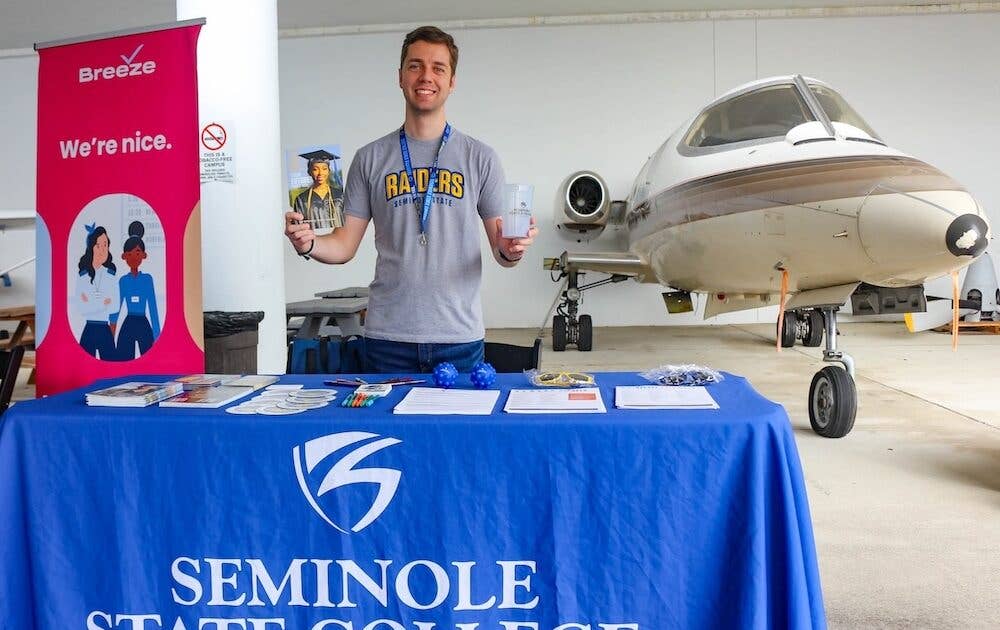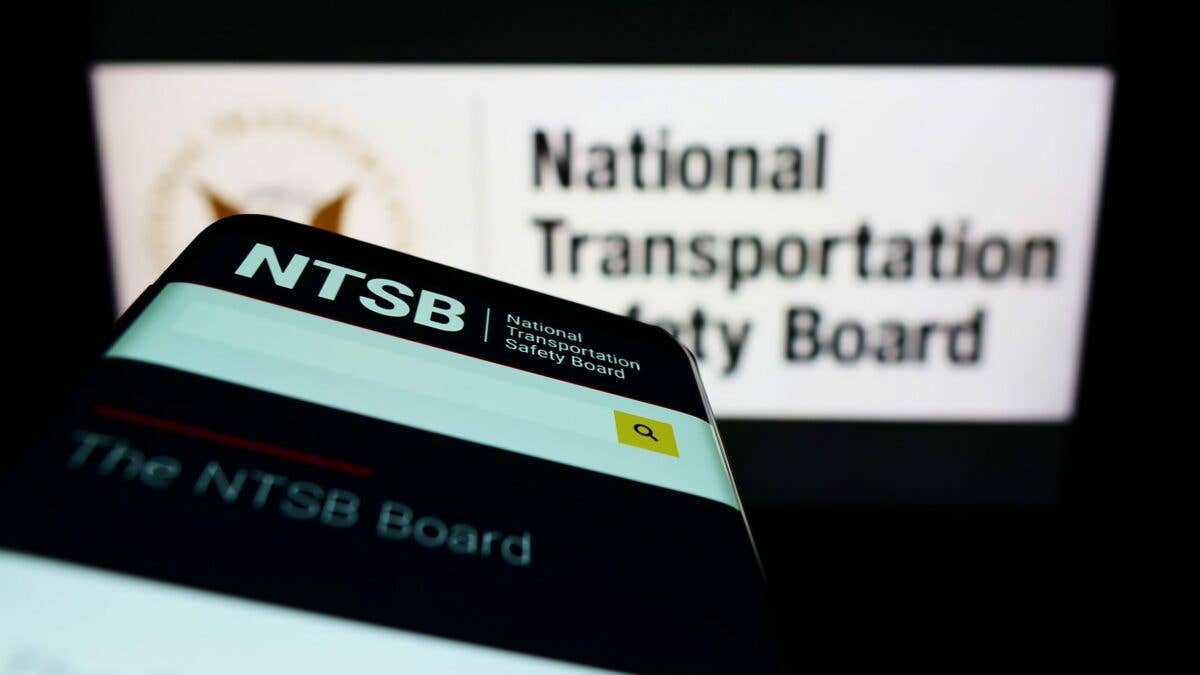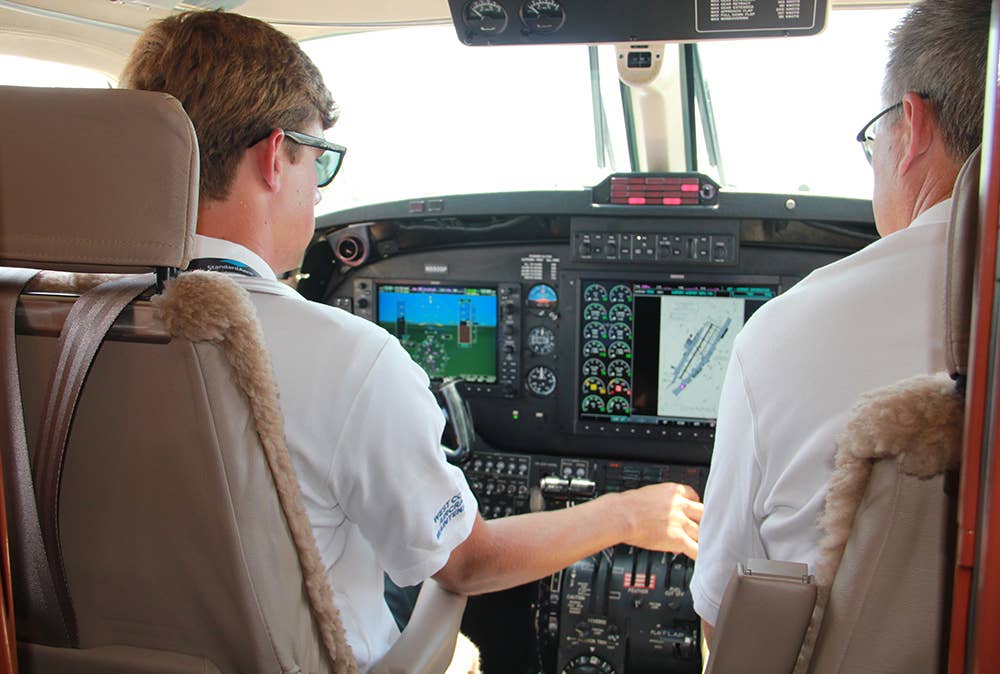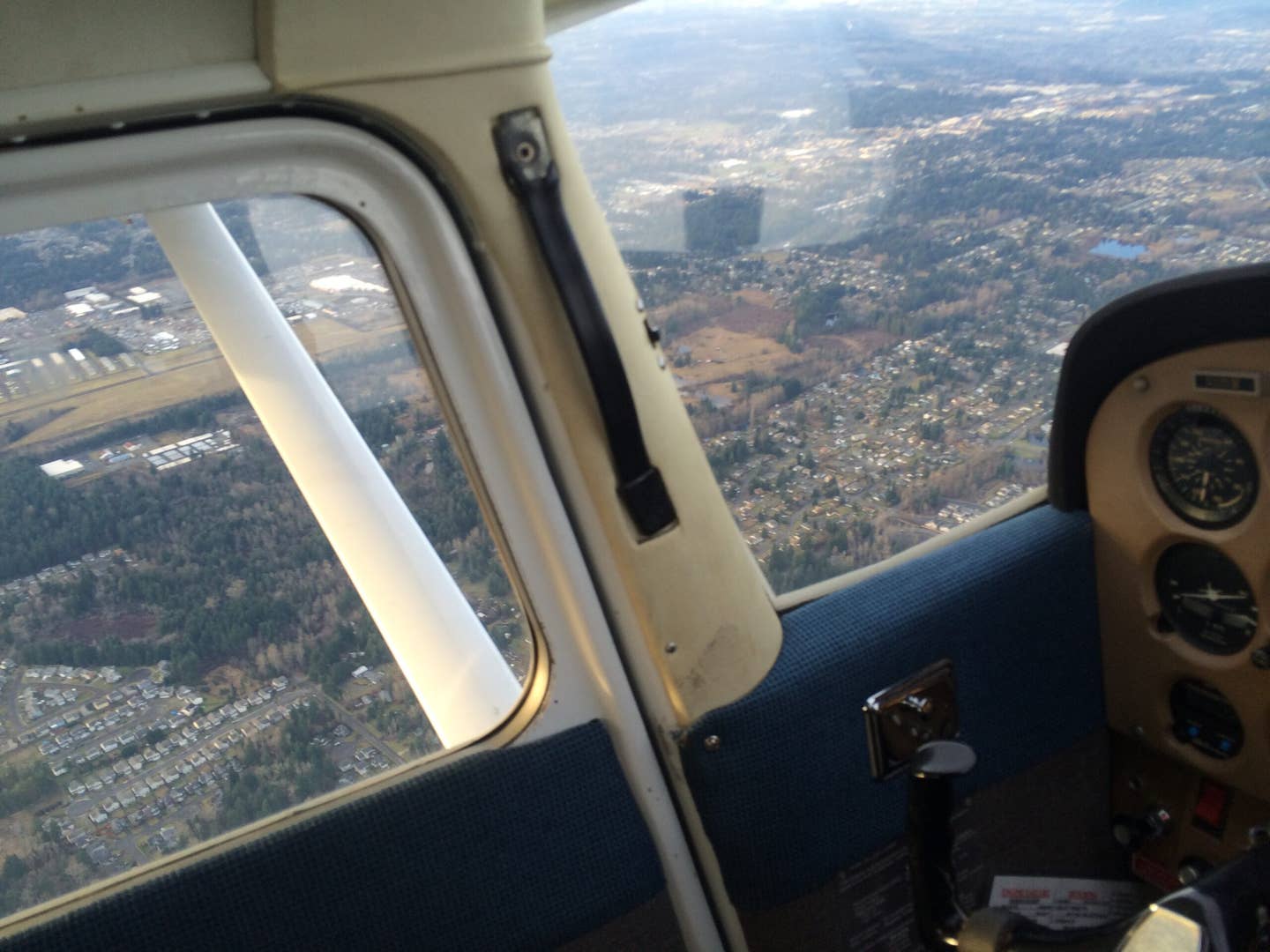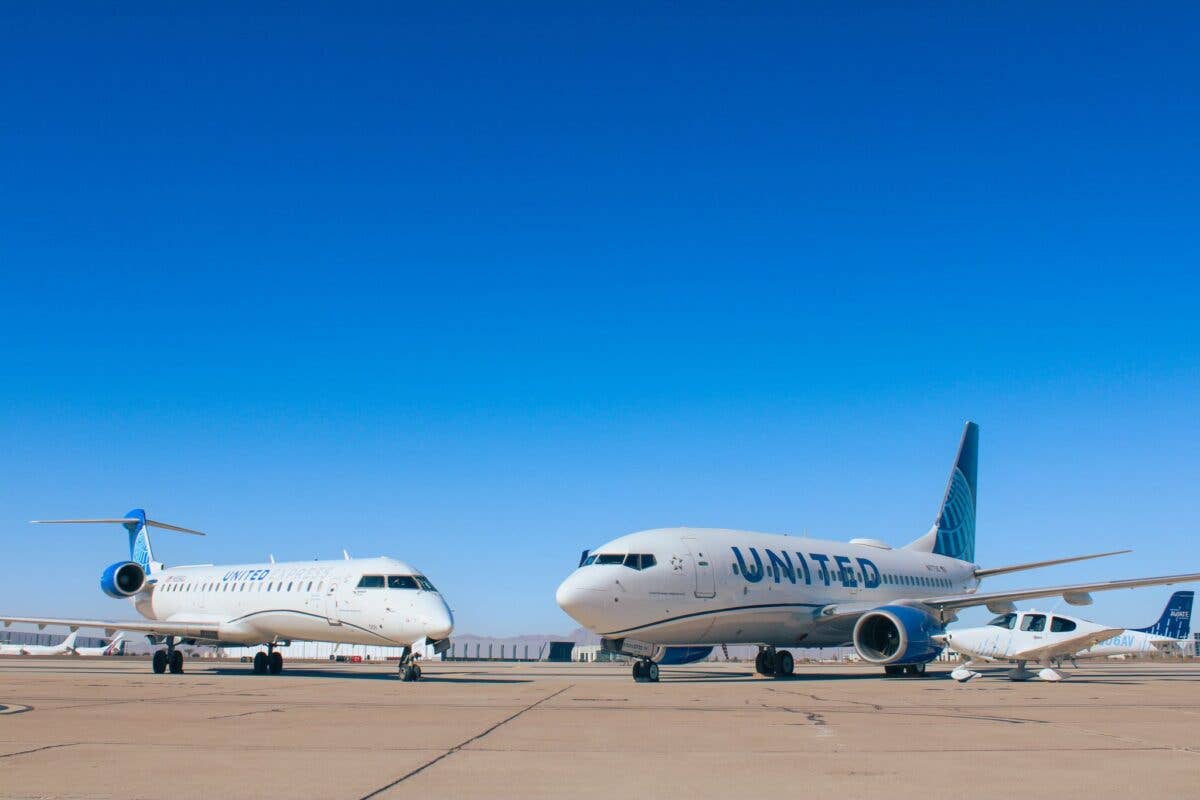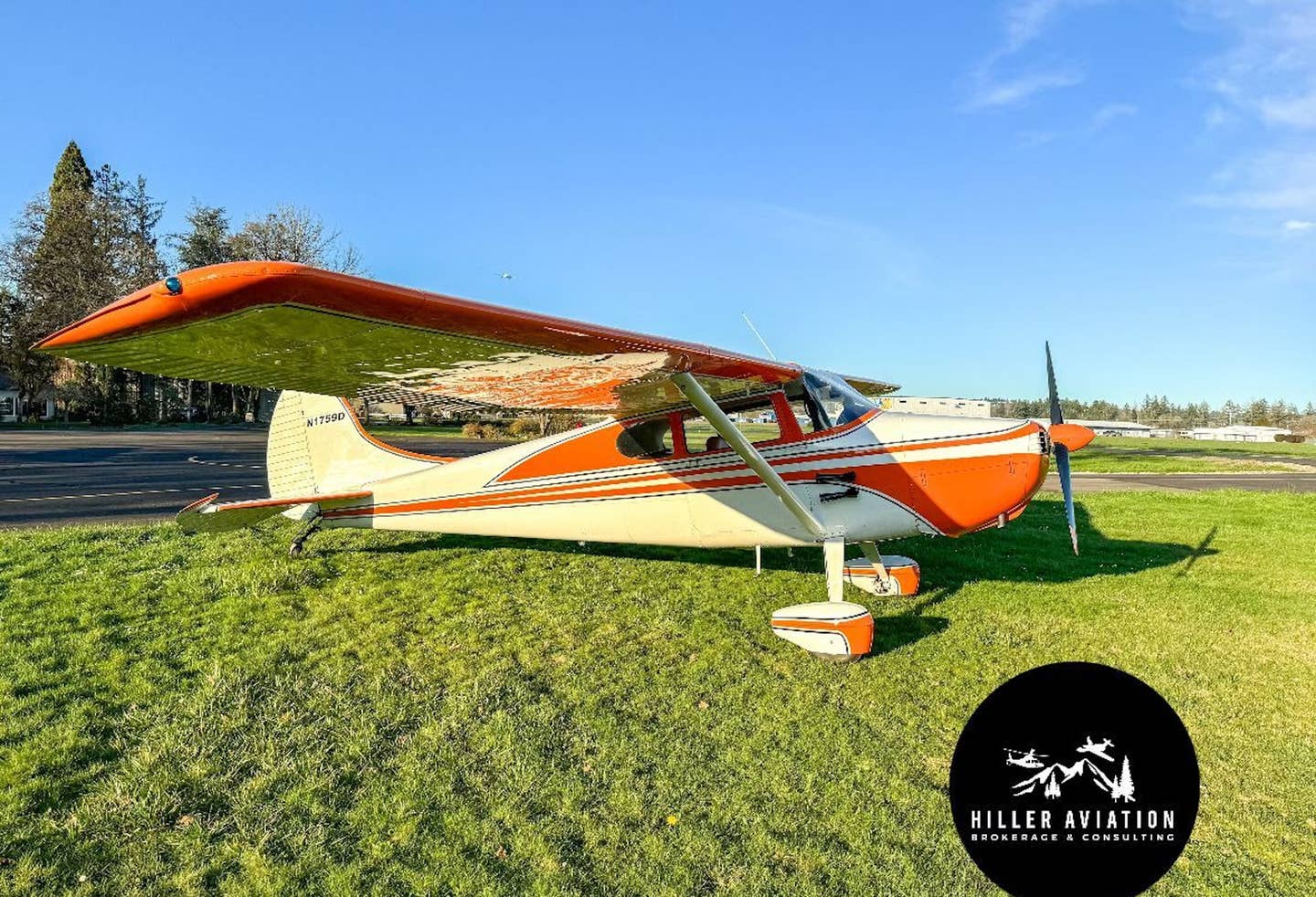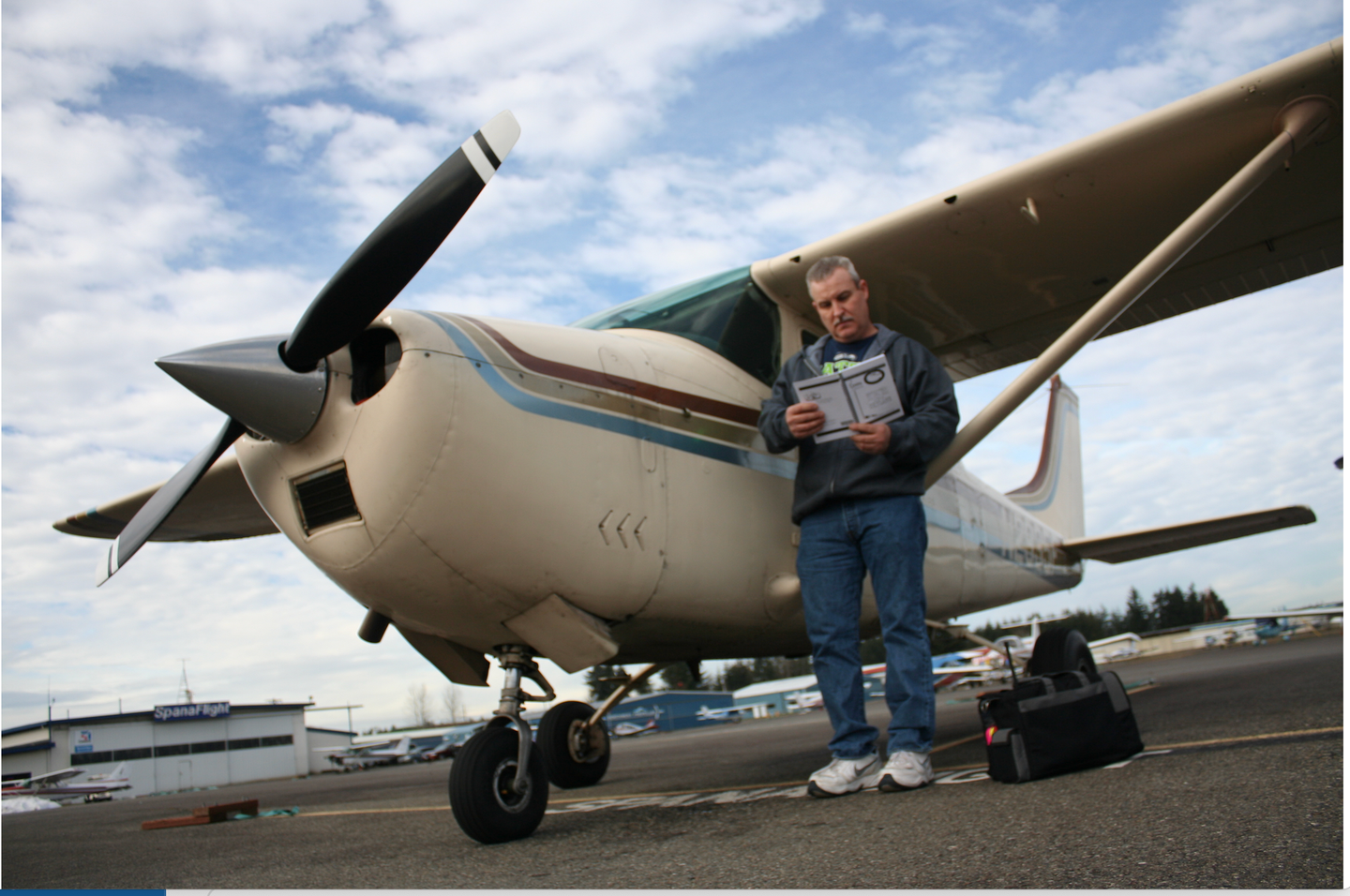
A renter studying POH before flight. [Courtesy: Meg Godlewski]
To rent a car in the United States you have to be at least 25 years old, have a valid credit card, and hold a valid driver's license. After a few minutes of paperwork, and you're out the door. Renting an airplane is nowhere near that quick or easy—aircraft rental involves a logbook review, an open-book test to be reviewed with a CFI, and a checkout flight of (usually) at least one hour.
Most FBOs have a story about a customer who wanted to rent an airplane but left in frustration because they thought the rental requirements were excessive and they were being milked for money, or the CFI was angling for more time. Please believe me when I tell you that the rental checkout is usually not a money grab—the requirements for rental checkout are usually set forth by the FBO's insurance carrier.
Certificate and Logbook Review
The first things we will want to see when you come for a rental checkout are your pilot and medical certificate. If you are flying under BasicMed, be warned, there are some FBOs that will not allow solo rental to pilots flying under BasicMed, allegedly for insurance reasons.
Logbook review comes next. The CFI wants to see your total time, what kind of aircraft you normally fly, the frequency you fly, and the location. If you want rental privileges in a mountain state, like Colorado, but all your flight experience has been along the coast of Florida, expect more time for a mountain checkout.
The CFI will also note how long has it been since you exercised your Pilot In Command (PIC) privileges, and by that, we're looking for the true definition of PIC, not riding along with a buddy on a $100 hamburger flight. Please note that if the experience is not logged, it does not count toward total experience—you’d be amazed at how many pilots think a ride along with a more experienced pilot in a usually more advanced airplane “counts” in this respect.
Be prepared to answer questions about what kind of flying you do—what are the dimensions of the runway at the airport you normally fly out of? Is it towered or nontowered? And then there is the big kahuna of questions: Why are you seeking rental privileges? More often than not, the customer is either building hours toward another certificate or a job, or he or she is “between airplanes” and doesn't want to get rusty.
The “why” question is very important. Let's say your intent is to get rental privileges because you want to take a long trip, say one that takes you out of state overnight. Make sure the flight school allows this before you begin the checkout process. Many schools do not permit overnight rental because they can't afford to have an airplane off the line, not generating revenue for an extended period.
In addition, if you want night-flying privileges, that may require an additional checkout at night. Often, this is simply a few takeoffs and landings in the dark.
There may be a requirement of experience or certificate level to rent a certain aircraft. For example, if you want to rent the 172RG, it may require 100 hours total time and a complex endorsement. Or if you want to rent the aircraft with the G1000, you need to show you have logged at least five hours in an aircraft equipped with a glass cockpit. If you don't quite meet the hourly requirements, there is the possibility that your flight check in the aircraft will bring you up to the requisite hours. It may take a few flights to get where you need to be.
The Rental Checkout
The checkout usually begins with an open-book test on the aircraft systems, local airspace, and Federal Aviation Regulations, followed by a calculation of the aircraft's weight and balance along with the takeoff and landing performance. The good FBOs will advise would-be-renters to expect this when they call or email for information about rental privileges, and often email the required tests in advance.
Expect to review the test and performance calculations with a CFI. You'd be amazed at how many people forget how to do basic things after they pass the check ride because they don't use these skills—their flights have become a few laps in the pattern or a trip for a $100 hamburger or pancake, with a weather briefing that consists of looking out the window. Or maybe procedures, such as checklist use, has become sloppy. These soft spots will surface in a rental checkout.
The flight maneuvers usually consist of a normal takeoff and landing, steep turns, slow flight, stalls, basic navigation, and, if appropriate, VFR procedures for the airport. Expect to do takeoffs and landings and experience an uncommanded loss of engine power—most likely when you are in the pattern—with the intent to troubleshoot as you prepare to glide to a landing.
If the pilot exhibits sloppy procedures, for example, reluctance to obtain a weather briefing or calculate performance before takeoff, no clearing turns, forgets the rudders or checklists, or handles the aircraft roughly, the CFI may be reluctant to grant rental privileges. That is within their authority, and quite frankly, a double-edged sword. If the CFI signs off the pilot for rental and the pilot does something foolish that damages an airplane, the FBO could possibly hold the CFI accountable. And if the renter-to-be goes away angry, the FBO loses revenue. It is a delicate balancing act.
Student Pilots
If you are a student pilot and have been soloed by another instructor at another FBO, do not expect the solo endorsement to transfer to the new FBO. The CFI performing the flight check will likely put you through the 15 things you need to know how to do per FAR 61.87 before they provide you with a solo endorsement, and it is highly unlikely that it will be a one-and-done situation, especially if the ground knowledge—such as FARs or local airspace—is weak.
It is not uncommon for student pilots—using the FAR AIM definition here—to go shopping for rental privileges because, although they are “almost ready to solo,” their regular CFI "isn't letting them solo." If this is you, have a discussion with your primary instructor about what it will take for you to achieve solo privileges, because if you switch FBOs mid-training, you will likely have to repeat previous lessons so the new CFI can validate your skills and knowledge.

Sign-up for newsletters & special offers!
Get the latest FLYING stories & special offers delivered directly to your inbox

